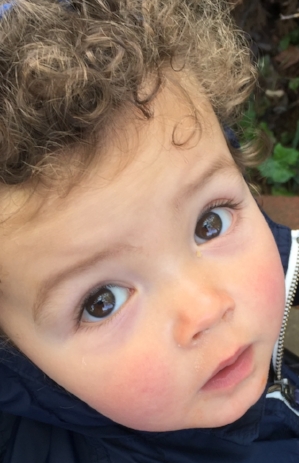The Super Power of Empathy
/When Doug and I were engaged, the book Men are From Mars, Women are From Venus was all the rage. We read it and talked about it and actually found many of the principles to be helpful. To be honest, the older I get, the less I find male/female generalizations to be very useful, but at the time, in this particular season, this book gave us some great tools.
One of the nuggets we found in the book is that “women talk to feel better.” The author argues that, while a man instinctively wants to “fix it” when his woman is hurting, frustrated, overwhelmed, or whatever, what she mainly wants is to feel heard. As she processes out loud, often the “fog lifts” and she begins to feel a bit better, just having talked about it.
I actually find that both men and women are “fix-it” oriented. I have been in many settings with females where a woman opens up about a difficult situation and all the other women chime in with a solution…so I’m not sure this is a male/female thing as much as it is a human/human thing, but I am not an expert.
I remember early in our marriage, when I would be talking and talking and talking, Doug would say, a bit under his breath, “women talk to feel better.” He would man-whisper it almost to give himself a pep talk, reminding himself that he didn’t have to fix anything, that just his presence, and listening ears were what I really needed. I always loved when he would do that because it reminded me how devoted he was to me, to loving me and understanding me and giving me what I needed.
This brings me to Inside Out, the delightful Pixar film telling the story of the 11-year old girl Riley Andersen, from the perspective of her “control center” where five personified emotions—Joy, Anger, Disgust, Fear, and Sadness try to navigate her through life as she moves with her parents from the Midwest to San Francisco.
I am not sure if these next few thoughts will make much sense to you unless you have seen the film, but here goes! I really could go on and on about this movie, but one of the moments that I found most profound was between Bing Bong, Riley’s imaginary friend, and Sadness. Joy was busy trying to “fix” everything so that Riley could get “back to normal,” meaning happy, happy, happy, joy, joy, joy, every moment of every day. Bing Bong was feeling sad about no longer being an important part of Riley’s life (we all realize that by 11, most kids no longer have their imaginary friends), and while Joy was busy trying to get Bing Bong focused on the positive and to “not think about” the pain, Sadness came and sat beside Bing Bong and listened, validating the grief and longing with comforting words and simply with her presence. To Joy’s surprise, Bing Bong actually seemed to feel better after having been heard and comforted. At this point, Joy had an epiphany. Sadness is just as important to Riley as is Joy. Seeing Sadness in action, empathizing and validating, gave Joy the idea of how to help rescue Riley out of the preteen mess she found herself in.
I just sat there in the theater and bawled. I cried and cried at the power of empathy. The healing nature of a friend who is willing to sit with us and hear us, in our sadness, our longing, our “not-enoughness.” The power and comfort of feeling that someone is not scared away by the moments where we find ourselves thinking and saying, “wow-I didn’t expect life to be this hard.”
Feeling validated can be so incredibly freeing. Feeling like someone is trying to fix me often adds to the pain.
Of course there are times to speak life. Most definitely. But don’t underestimate the power of validating the sadness, the pain, the loss, the longing, the unanswerable questions. Resist the urge to always fix. Because just your empathic-filled presence is all the healing your friend may need. Sitting in the sadness may help you and those you love find your way back to joy.
Love, Christy













